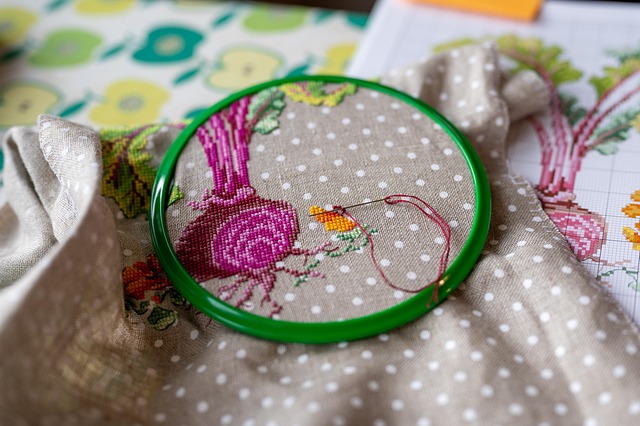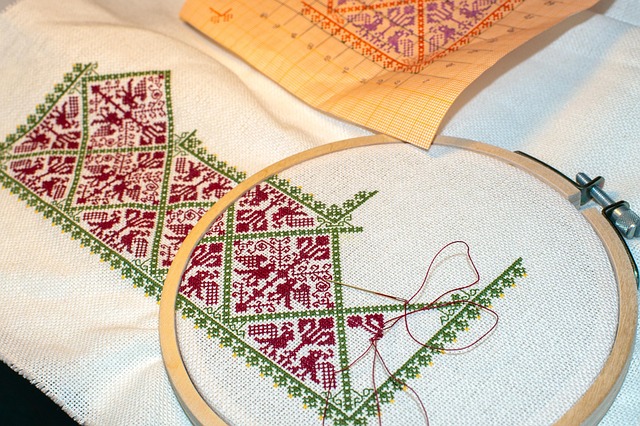The Crafts Industry is experiencing a significant surge, evolving into a $14 Billion Dollar Business and showing no signs of slowing down, as indicated by a recent study conducted by ASU. With the majority of crafters launching their ventures from the comfort of their homes, the industry has become a thriving ecosystem for creative entrepreneurship.
In the United States alone, it’s estimated that over 126,000 individuals sustain themselves through the products they craft, illustrating the substantial economic impact of this sector. Surprisingly, many craft households outperform the average American family economically, boasting a median income of $50,000 annually compared to the national average of $39,000.
Moreover, the realm of arts and crafts presents a plethora of opportunities for business ventures beyond the creation of crafts themselves. Entrepreneurs can explore various avenues to enter the crafts industry, even if they don’t directly engage in crafting activities. With such versatility, this vibrant sector continues to attract innovative minds seeking to capitalize on its immense potential.
Sell Your Crafts Online:
Selling online is also one of the quickest and easiest way to begin making make money online. Selling handmade products in online platforms like Etsy, eBay, or Amazon Handmade offers a low-cost way to begin selling your handmade products online from the comfort of your home.
Sell Crafts On Your Own Website:
You can use WordPress WooCommerce to set up an online store and cut out the middle man and save on fees charged by online marketplaces.
Start a Craft Membership Site
A craft membership site is an online business that limits access to its content to paid members. Membership sites can provide a way to fund ongoing projects by offering exclusive content to paying members. For example, visual artists can allow paid members to be part of the creative process while working on long-term projects. Membership sites can also be a way for video content creators to monetize their work beyond YouTube ad payouts or direct sponsorships.
Membership sites typically require paid memberships on a recurring basis, such as monthly or annually. The content can include a variety of types, such as exclusive videos, blogs, articles, podcasts, webinars, screencasts, and white papers.
Start A Craft Blog
You can offers tutorials, shares crafting tips, Monetize a crafting blog with affiliate programs and earn money. It is a great way to earn extra money which can lead to a full-time career!
Sell Crafting eBooks
Publish and sell downloadable craft e-books on your topic of expertise. How-to books have always been popular even before e-books hit the market. People are naturally hungry for information. This could include step-by-step instructions, templates, and tips for completing specific crafts.
Sell Craft Patterns
If you have a popular craft product, then selling digital patterns for various crafting projects including step-by-step instructions, could be a good money maker for you. You could also develop patterns for publication in magazines and books.
Sell Craft Supplies and Materials
Craft supplies are in high demand! If you have a knack for sourcing materials or making crafting supplies, you can sell them online or in-person. Craftsmen, both amateurs, and professionals need craft supplies to produce their products. Craft supplies are hard to find in rural towns, making selling craft supplies a high-profit potential online business idea ! This could include selling yarn, fabric, beads, tools, patterns, quilting supplies and so much more.
DIY Craft Kits
Create and sell DIY craft kits that include all the materials and instructions needed for a particular project. This appeals to individuals who enjoy crafting but may not have the time or expertise to gather materials and plan out projects themselves.
Crafting Subscription Boxes
Offer a subscription service where subscribers receive a curated selection of craft supplies, tools, and instructions on a regular basis. This provides a steady stream of income and keeps customers engaged. You can promote the subscription service on your own website.
Customization and Personalization
You could offer personalized or custom-made crafts tailored to individual preferences. This could include monogrammed items, custom jewelry, engraved products, or personalized artwork.
Teach Workshops or Classes Online
Share your skills and expertise by organizing workshops, classes, or craft parties. Topics could range from basic crafting techniques to specialized skills like quilting or glassblowing. There are several platforms where you can teach craft classes online and potentially make money.
Teach From Your Own Website
You can create and sell your own craft classes directly through your website. You can use WordPress and free Learnpress plugin to sell digital products like online courses on your own Website.
Skillshare
Skillshare is an online learning community where users can take classes on a variety of topics, including crafts. As a teacher on Skillshare, you can earn money through royalties based on the number of minutes watched by premium members of your classes.
Udemy
Udemy is a popular online learning platform that offers courses on a wide range of subjects, including crafts. You can create and sell your own courses on Udemy and earn money through course sales.
Teachable
Teachable is a platform that allows you to create and sell online courses. You can design your own course materials, set your own pricing, and keep a larger percentage of your course sales compared to some other platforms.
Patreon:
Patreon is a membership platform that allows creators to earn money from their fans through monthly subscriptions. You can offer exclusive content, behind-the-scenes access, and other perks to your patrons, including craft tutorials and workshops.
Host Live Virtual Craft Classes
Zoom can be used to host live virtual craft classes and workshops. Topics could range from basic crafting techniques to specialized skills like quilting or glassblowing. While Zoom is not a dedicated online learning platform, You can charge participants a fee to attend your classes, either through a third-party payment processor or by sending invoices directly to your students.
Teach Craft Classes Offline
There are craft shops that offer free classroom space to promote their products in your craft projects. Check with your local craft shop for teaching opportunities. Earn extra money teaching craft classes at a college or university through their community-based adult enrichment program. There are many retired people, who want to make good use of their leisure time and would enjoy learning new crafts.
Teach crafts as a freelance craft teacher or recreation aide in a retirement home. There are some churches that will allow you to teach a craft class to their members as a fundraiser. You would share a small percentage of the money charged, such as 10 to 20 % of the fee charged per student.
Craft Events
You can organize or participate in crafting events such as craft fairs, markets, or pop-up shops. This provides an opportunity to showcase and sell your products while networking with other crafter’s and potential customers.
Check with the local chamber of commerce or search your State’s website for listings of upcoming shows and fairs.
Many local colleges hold annual craft fairs. Some independent craft show promoters set up craft shows at local churches. Some churches host their own craft fair as a fundraiser.
Other event ideas is to offer crafting activities or workshops for corporate events, team-building exercises, birthday parties, or other special occasions.
Sell Your Crafts On Consignment
Selling on consignment is a practice frequently used by artists and craftspeople. It literally means that you are giving over your work to someone in the business of selling handmade products, such as a craft consignment shop. The retailer keeps a percentage of the sale price as a commission once a sale is made.
The travel and tourism industry is the third-largest employer in the United States, supporting over 5.85 million travel-related jobs. Selling your crafts to tourists is a great way to earn an extra income. Check out local shops selling to tourists and see if they are willing to sell your handicrafts on consignment.

















